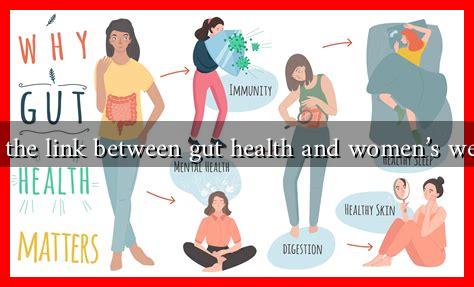-
Table of Contents
What is the Link Between Gut Health and Women’s Wellbeing?
In recent years, the connection between gut health and overall wellbeing has gained significant attention in the medical and wellness communities. For women, this link is particularly crucial, as gut health can influence various aspects of physical and mental health. This article explores the intricate relationship between gut health and women’s wellbeing, highlighting the importance of maintaining a healthy gut microbiome.
The Gut Microbiome: An Overview
The gut microbiome refers to the trillions of microorganisms residing in the digestive tract. These bacteria, viruses, fungi, and other microbes play a vital role in digestion, immune function, and even mental health. A balanced gut microbiome is essential for optimal health, while an imbalance can lead to various health issues.
How Gut Health Affects Women’s Health
Research indicates that gut health significantly impacts several areas of women’s health, including:
- Hormonal Balance: The gut microbiome influences estrogen metabolism. An imbalance can lead to conditions such as estrogen dominance, which is linked to PMS, endometriosis, and even certain cancers.
- Digestive Disorders: Women are more prone to digestive issues like irritable bowel syndrome (IBS). A healthy gut can help alleviate symptoms and improve overall digestive health.
- Mental Health: The gut-brain axis is a bidirectional communication system between the gut and the brain. Studies show that gut health can affect mood and mental health, with imbalances linked to anxiety and depression.
- Immune Function: Approximately 70% of the immune system is located in the gut. A healthy microbiome supports immune responses, reducing the risk of infections and autoimmune diseases.
Case Studies and Statistics
Several studies have highlighted the importance of gut health in women’s wellbeing:
- A study published in the Journal of Women’s Health found that women with IBS often have a less diverse gut microbiome compared to healthy individuals, suggesting a direct link between gut health and digestive disorders.
- Research from the American Journal of Psychiatry indicates that women with depression often exhibit dysbiosis, or an imbalance in gut bacteria, further emphasizing the gut-brain connection.
- A survey conducted by the World Health Organization revealed that women are more likely to experience autoimmune diseases, which are often linked to gut health issues.
Improving Gut Health for Better Wellbeing
To enhance gut health and, consequently, women’s wellbeing, consider the following strategies:
- Diet: Incorporate a diet rich in fiber, fruits, vegetables, and fermented foods like yogurt and kimchi to promote a healthy microbiome.
- Probiotics: Taking probiotic supplements can help restore balance in the gut microbiome, especially after antibiotic use.
- Hydration: Drinking plenty of water aids digestion and helps maintain a healthy gut lining.
- Stress Management: Practices such as yoga, meditation, and mindfulness can reduce stress, which negatively impacts gut health.
- Regular Exercise: Physical activity has been shown to promote a diverse gut microbiome, contributing to overall health.
Conclusion
The link between gut health and women’s wellbeing is profound and multifaceted. A balanced gut microbiome plays a crucial role in hormonal balance, digestive health, mental wellbeing, and immune function. By prioritizing gut health through diet, probiotics, hydration, stress management, and exercise, women can significantly enhance their overall wellbeing. As research continues to unfold, it becomes increasingly clear that nurturing our gut is not just about digestion; it is a cornerstone of holistic health.

